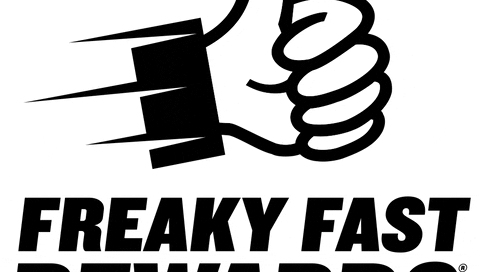Episode #32 - Two words: Credit Cards.
A two part series where we'll unpack enough credit cards for you to finally get it.
Intro:
Pretend you don’t have a credit card in your name.
70% of Americans have at least one credit card, but my guess is that some folks on this list fall into the 30% who do not. Even if you do have one, have you ever questioned the premise of why have a credit card at all? In this episode I plan to address some specific questions about credit cards in honor of those who haven’t taken the plunge into the credit card pool, and I’m sending a flotation device for those in the pool but still want to understand why they’re there in the first place.
If you’re not game for the credit card talk and pool metaphors, scroll down to the pre-tax-day bit of the episode and learn something new on that front. Regardless, please share this episode of Winnings with one friend or family member who will benefit from learning about all of these things.
Background:
According to a 2019 US News and World Report study 1 in 5 Americans don’t even know if they HAVE credit card debt. You may be in this category of folks, but if you’ve followed previous episodes about different money tracking programs you will hopefully get out of that status ASAP. The key to understanding the credit card is understanding what it means to have one, what it means to not have one, and then how to go about getting and maintaining one (or more).
Slight Refresh
For those who need a refresher, a credit card is most commonly compared to a debit card. When you make a transaction with your debit card the money you spend comes directly out of your checking account, it’s like using cash. If you buy on an $11 latte or a $400 iPad on the debit card, you transfer the money to the vendor immediately (or as long as it takes the store to ask for the money from your account). However, when you use a credit card, the money is added to your monthly credit card bill assuming you still have room left on your credit line to make the purchase.
Each credit card comes with a pre-determined “credit line” and purchasing something that takes you over that line results in a declined payment. If you try to make a purchase like this with your debit card it will also be denied or you’ll be hit with an overdraft fee. For both the debit and credit card, going over the “line” is not optimal. (For answers to “what determines your credit line” and “how do you know where you are on the credit line” subscribe so you’ll get the next episode.)
Most simply, with a credit card you can purchase items that you don’t have cash for at the moment. Say you want to buy a new laptop, but you don’t get paid until the end of the month. If you buy the laptop on a debit card, the transaction wouldn’t go through because you don’t have cash on hand for it. If you bought it on a credit card and you had the credit available, it would be shipped as soon as the company ships laptops. For more on the distinction between these two cards check out this article from Investopedia.
In case you’re not fully caught up on previous episodes, I recommend episode #22 and #23 where I covered credit/credit scores. This might help you better understand the credit conversation.
Why get a credit card?
As you can tell from the section above, the most obvious advantage of a credit card comes through your ability to buy things when you don’t have cash on hand to purchase them. WAIT. This is an important time to remind you of two things 1) if you have a tendency to overspend your income or the amount of money you have in the bank then this might not be the perfect time for you to get a credit card, and 2) there is a way to alleviate some of your credit card debt by enacting a “balance transfer” which means moving your owed credit card debt to a new credit card because it has a lower APR (aka interest rate, aka amount your credit card debt grows every time you don’t pay your balance). This last point assumes you already have credit card debt and is beyond the scope of today’s note.
To point one (1), even if you do have this tendency, getting a credit card MIGHT be the way for you to reign in poor spending habits, when adding in the other reasons for getting a credit card.
Much digital ink has been spilled on the reasons to get a credit card. For example, the folks at Investopedia have come up with ten commandments (my editorial flourish, they just call them reasons), for those who think I only check Investopedia, Nerdwallet has a nice Credit Cards 101 site, and I know you can google for many more.
In the spirit of economy of language, I’m going to highlight three reasons:
Rewards and bonuses: Spending money on your debit card is literally just that, spending money. When you spend money with a credit card, you will typically get some form of “bonus” for signing up, that could be a few hundred dollar statement credit (think $100-$500) and then there are what I call “pile on” rewards like some percentage cash back (pioneered by Discover, but also many others have it) or another incentive like airline miles for each dollar you spend. Each of these rewards gives you more bang for your buck.
Protection: Because your credit card company fronts the money for you when the cashier makes the initial swipe, you’ve got a full arsenal of protection from the credit card company if you get swindled out of an experience or something goes horribly wrong. In the same vein, when your debit card is used fraudulently the money comes out of your account right away, with a credit card you’ve got the protection of a few days before you need to pay the bill so you can fight the charge and make sure you don’t get mired in fees that weren’t supposed to be for you anyway!
Broad acceptance: Some companies and vendors won’t take debit cards because of the risk that the payment will “bounce” when the system finds out that the money you claim is in your account is not actually in the account. With a credit card, most vendors need to take them (granted some places have credit card minimums, for another discussion) and they have the protection of the credit card company who is actually fronting the money for you.
I know I said I’d only hit three reason, but please check out this and this about credit for another super important reason having a credit card, using it, and paying the bills on time will help you do the credit building thing.
Pre-Tax Corner:
Well, this is an interesting one. Do you pay taxes on your stimulus check? It’s a short answer according to the folks at USA Today: No.
If you’ve got other questions on this front, leave them in the comments or respond via email. I’ll do some research and remember I’m not giving tax advice. Just showing you things that I’ve found. Always check with someone qualified to give this type of advice!
Takeaway:
There are many reasons to get a credit card and start (or continue) to build your credit
If you’ve already gone down the rabbit hole of learning more about credit cards from the included links, super! You’re likely in good hands and should figure out the best way to pull the trigger on your first credit card. As I mentioned at the outset, if you’ve had a card for years but didn’t know that these were big reasons to have a credit card - I bet you have friends who don’t know this either - so share the note!
Interact:
If you’ve got a credit card, please just click the like button on this post. It will inspire those on this list who don’t have a card yet to get one. If you don’t have a credit card, feel free to respond to this email with your worries/concerns. I will be covering some of the downsides of credit cards and the “how to do it” (in a few pictures) in the next episode of Winnings.
Gratitude:
Thank you to my brother Mendel W. for inspiring this note and it’s sister note to come next week. Your power move to a new city is totally inspiring and exciting. Rock it.
What did you think of this note?
Awesome - Good - Solid - Eh - Bad
Check out my tweets about #Winnings and more @StartupRabbi
Please remember, I’m not providing professional advice about personal finance. I’ve got a lot of friends who do that and you can totally hit me up for an intro if you’d like - I don’t get any commission - just the happiness that my readers are taking their financial health seriously.






